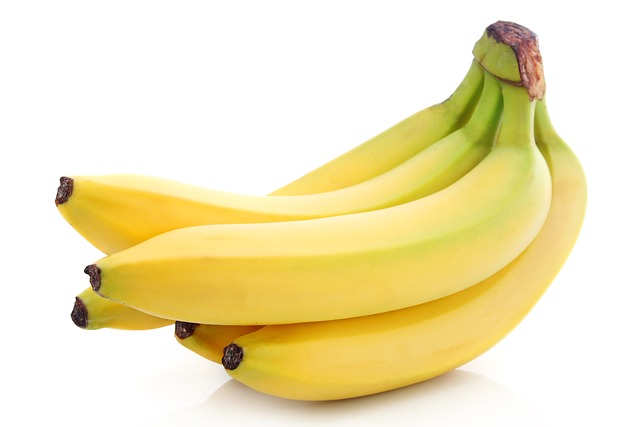Broccoli, a powerhouse vegetable loved for its versatility and health benefits, is often touted as one of the healthiest foods you can include in your diet. Whether you’re curious about its origin, nutritional value, or the best ways to prepare it, this article covers all your questions about broccoli.
What Is the Family Name of Broccoli?
Broccoli belongs to the Brassicaceae family, also known as the mustard family. This group includes other nutrient-dense vegetables like kale, cauliflower, cabbage, and Brussels sprouts. Its scientific name is Brassica oleracea, and it falls under the Italica cultivar group.
Is It Broccoli or Brocoli?
The correct spelling is broccoli, with two “c”s. The word originates from the Italian “broccolo,” meaning “the flowering crest of a cabbage.”
Is Broccoli a Vegetable or Non-Vegetarian Food?
Broccoli is undoubtedly a vegetable. Specifically, it is a cruciferous vegetable, known for its high nutrient content and cancer-fighting compounds.
Can Humans Eat Raw Broccoli?
Yes, humans can eat raw broccoli! In fact, eating raw broccoli preserves its nutrients better than cooking it. Raw broccoli is rich in vitamins, minerals, and antioxidants, but some people find its taste and texture more enjoyable when cooked.
Is Broccoli a Vegetable or a Flower?
Broccoli is both a vegetable and a flower. It’s the flowering head of the plant that we commonly consume. If left to grow, the broccoli heads would bloom into small yellow flowers.
Broccoli Benefits for Men
Broccoli offers several health benefits specifically for men:
- Supports Prostate Health:
Broccoli contains compounds like sulforaphane that have been linked to reducing the risk of prostate cancer. - Boosts Testosterone Levels:
Its high vitamin D content can help regulate hormone levels, including testosterone. - Promotes Heart Health:
The potassium and fiber in broccoli support cardiovascular health, which is particularly important for men at risk of heart disease. - Improves Fertility:
Broccoli’s antioxidants, including vitamin C, improve sperm quality and protect against oxidative stress.
Broccoli Benefits for Women
Broccoli also offers unique benefits for women:
- Supports Bone Health:
Rich in calcium and vitamin K, broccoli is excellent for maintaining strong bones and preventing osteoporosis. - Enhances Skin Health:
Broccoli’s antioxidants, including vitamin C and beta-carotene, promote glowing skin and fight signs of aging. - Balances Hormones:
Cruciferous vegetables like broccoli contain phytoestrogens, which may help regulate hormonal imbalances. - Reduces Breast Cancer Risk:
Compounds in broccoli have been shown to reduce the risk of breast cancer by inhibiting cancer cell growth.
What Is the Best Way to Cook Broccoli?
The way you cook broccoli can significantly impact its nutrient content. Here are some of the healthiest methods:
- Steaming: Retains the most nutrients, especially vitamin C and sulforaphane.
- Blanching: A quick boil followed by an ice bath preserves its crunch and nutrients.
- Roasting: Adds flavor while keeping its nutrient profile relatively intact.
- Sautéing: Quick and flavorful, but be mindful of using minimal oil.

When Is the Best Season to Eat Broccoli?
Broccoli is a cool-season crop, typically at its peak during the fall and spring months. However, it’s widely available year-round in grocery stores, thanks to modern farming techniques.
Nutritional Profile of Broccoli
Here’s a quick overview of broccoli’s nutrient content (per 100g):
| Nutrient | Amount |
|---|---|
| Calories | 55 kcal |
| Vitamin C | 89.2 mg |
| Calcium | 47 mg |
| Fiber | 2.6 g |
| Potassium | 316 mg |
| Protein | 3.7 g |
Additional Benefits of Broccoli
- Improves Digestion: High fiber content aids digestion and prevents constipation.
- Boosts Immunity: Packed with vitamin C, broccoli strengthens the immune system.
- Supports Eye Health: Contains lutein and zeaxanthin, which protect against age-related vision problems.
- Detoxifies the Body: Sulforaphane helps the liver detoxify harmful substances.
Fun Fact About Broccoli
Did you know? Broccoli was first cultivated in Italy over 2,000 years ago. It didn’t gain popularity in the United States until the 20th century, but today it’s a household favorite worldwide.
Conclusion: Why Broccoli Deserves a Spot on Your Plate
Broccoli is more than just a vegetable—it’s a nutritional powerhouse with benefits for everyone. Whether you’re looking to boost your immune system, support heart health, or enhance skin vitality, broccoli has you covered. From men seeking to improve fertility to women wanting to balance hormones, this versatile vegetable is a must-have in your diet.
Remember, whether you eat it raw, steamed, or roasted, broccoli can make a big difference in your overall health. Make it a part of your meals today and reap the benefits for years to come!
Quick Facts About Broccoli
Quick Facts About Broccoli
- Family Name: Brassicaceae
- Vegetable or Flower: Both! It’s the flowering head of the plant.
- Best Way to Cook: Steaming retains the most nutrients.
- Peak Season: Fall and Spring
- Top Benefits: Boosts immunity, supports heart health, and improves digestion.
Include broccoli in your meals for a healthier you!

